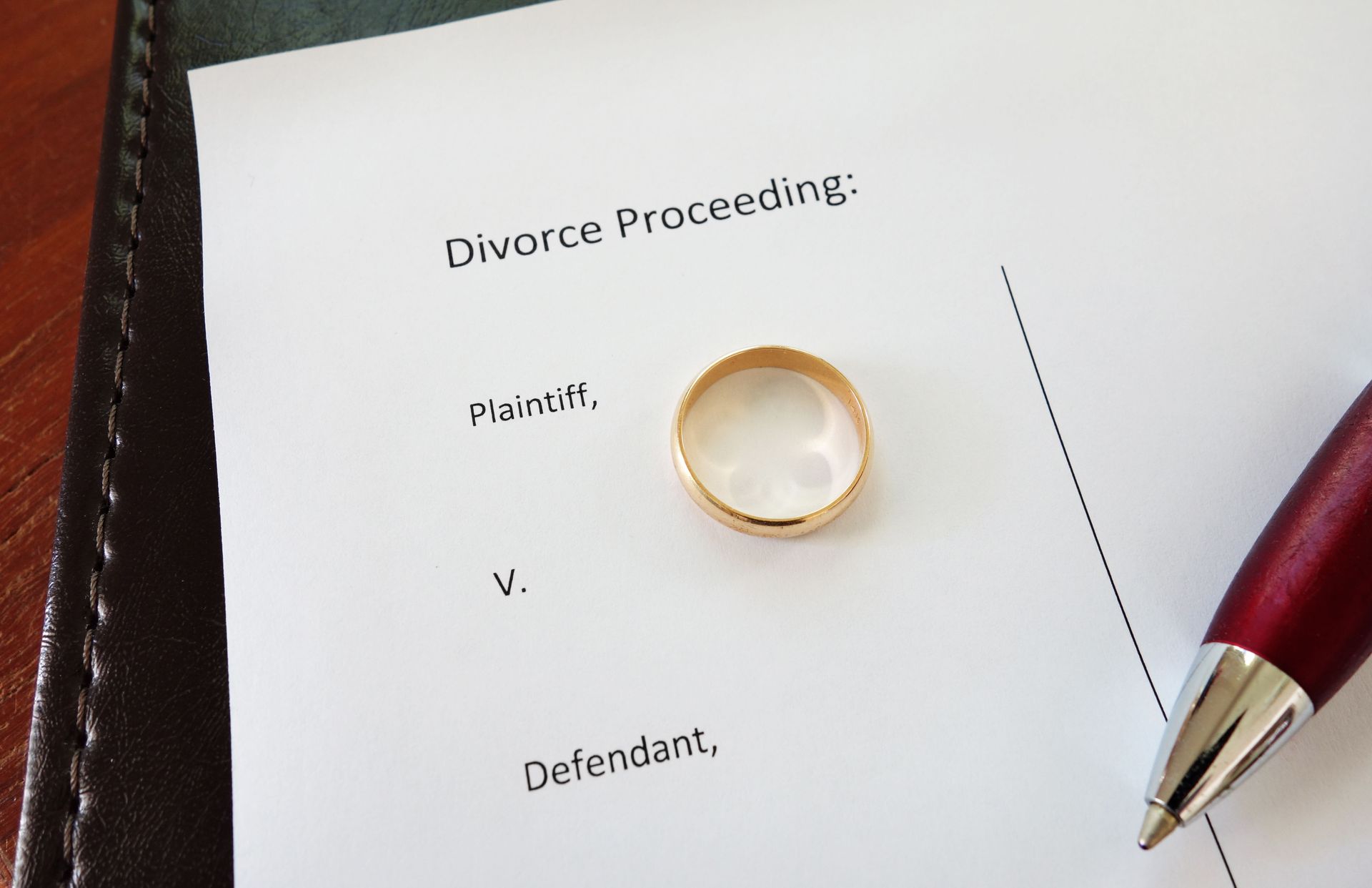Navigating Divorce: How Robyn Mann Law Simplifies Dual-State Filings for CT and NY Residents
By Attorney Robyn Mann | September 16, 2025
Highlights:
- Dual-state divorces in CT and NY are complex due to differing residency rules, custody laws, and property division requirements.
- Legal guidance is essential to navigate jurisdiction issues and protect rights across both states.
- Robyn Mann Law specializes in dual-state divorces, with expertise in Connecticut and New York laws.
- The firm provides personalized, client-focused strategies and emphasizes a whole-family approach.
- Filing requirements differ: CT requires 12 months of residency (with exceptions), while NY requires 1–2 years.
- Simplifying the process involves choosing the right jurisdiction, early documentation, and considering mediation.
- Financial and family impacts include asset division, taxes, custody, and co-parenting across state lines.
- Professional legal support helps avoid costly mistakes and ensures smoother long-term transitions.
Navigating the complexities of divorce can be challenging, especially when it involves legal proceedings across different states like Connecticut and New York. For residents facing this daunting task, Robyn Mann Law offers a guiding hand with its specialized expertise in dual-state filings. This law firm is uniquely equipped to handle the intricacies that arise when divorce laws vary between states, providing a streamlined approach for those residing in both CT and NY. In this post, we'll delve into the various ways that Robyn Mann Law simplifies the divorce process, addressing common concerns and questions that individuals may have about dual-state legal proceedings. Whether you're curious about the initial steps or how to manage legal differences across state lines, this comprehensive overview will shed light on how Robyn Mann Law can help you navigate your divorce with greater ease.
Dual-state filings in divorce cases present unique challenges and require specialized knowledge. This section explores the importance of legal guidance and the complexities of navigating divorce proceedings across Connecticut and New York.
Fun Fact
Did you know? In Ancient Rome, according to Imperium Romanum, either spouse could initiate a divorce simply by declaring the marriage over in front of witnesses—no court filings or paperwork required.
Importance of Legal Guidance
Legal guidance is crucial when dealing with dual-state divorce filings. An experienced attorney can help you understand the nuances of each state's laws and how they apply to your situation. Divorce laws can vary significantly between states, affecting everything from property division to child custody arrangements. Without proper guidance, you might overlook important details or make decisions that could negatively impact your case.
A knowledgeable lawyer can help you avoid common pitfalls and ensure that your rights are protected throughout the process. They can also help you understand how decisions made in one state might affect your situation in the other.
Challenges of Navigating Two States
Navigating a divorce across two states can be complex and confusing. Each state has its own set of laws, procedures, and requirements that must be followed. One of the primary challenges is determining which state has jurisdiction over your case. This can depend on factors such as where you and your spouse reside, where your assets are located, and where any children primarily live.
Another challenge is dealing with potentially conflicting laws between the two states. For example, New York and Connecticut have different residency requirements for filing for divorce, which can affect where and when you can file. Coordinating legal proceedings in two different states can also be time-consuming and potentially costly. It's important to have a lawyer who is familiar with both states' legal systems to help streamline the process.
Fun Fact
Did you know? According to The Times of India, one of the shortest marriages on record lasted only 3 minutes in Kuwait, after the bride tripped leaving the courthouse and the groom mocked her—she immediately demanded the marriage be annulled.
Benefits of Choosing Robyn Mann Law
Selecting the right legal representation is crucial in dual-state divorce cases. This section highlights the advantages of choosing Robyn Mann Law for your divorce proceedings.
Expertise in Dual-State Divorces
Robyn Mann Law specializes in handling dual-state divorces, particularly for residents of Connecticut and New York. This expertise is invaluable when navigating the complexities of cross-state legal proceedings. The firm's attorneys are well-versed in the divorce laws of both states, allowing them to provide comprehensive guidance. They can help you understand how different state laws might affect your case and strategize accordingly.
Their experience with dual-state cases means they're familiar with common issues that arise and know how to address them effectively. This can help prevent delays and complications in your divorce process. Robyn Mann's membership in the Connecticut Bar Association further underscores the firm's commitment to maintaining up-to-date knowledge of state-specific legal requirements.
Personalized Client Services
Robyn Mann Law prides itself on providing personalized services tailored to each client's unique situation. They understand that every divorce case is different, especially when it involves two states. The firm takes the time to listen to your concerns and understand your goals. This allows them to develop a strategy that aligns with your specific needs and circumstances.
Their attorneys are accessible and responsive, keeping you informed throughout the process. This level of communication can help reduce stress and uncertainty during what is often a challenging time. According to Robyn, the firm's approach to divorce as a "whole family affair" demonstrates their commitment to considering all aspects of your situation, not just the legal technicalities.
Frequently Asked Questions
How long does it take to get a divorce?
The timeline varies depending on the state, whether the divorce is contested, and how quickly both parties can reach agreement. Uncontested divorces may finalize in a few months, while contested cases with disputes over custody or property can take a year or more.
What is the difference between contested and uncontested divorce?
An uncontested divorce means both spouses agree on all major issues, such as property division, custody, and support. A contested divorce occurs when the spouses cannot agree, requiring court intervention to resolve disputes.
Do I need a lawyer to file for divorce?
While it is possible to file without an attorney, divorce laws and procedures can be complex—especially when children, property, or multiple states are involved. Having legal guidance ensures your rights are protected and that you avoid costly mistakes.
Concluding Thoughts on Divorce Support
As we wrap up our discussion on dual-state divorces, it's important to reflect on the long-term benefits of professional assistance and the final steps needed to move forward.
Long-Term Benefits of Professional Assistance
Engaging professional legal assistance for a dual-state divorce can provide significant long-term benefits. These advantages extend beyond just the immediate divorce proceedings. A skilled attorney can help you avoid costly mistakes that could have long-lasting financial implications. They can ensure that all agreements are legally sound and enforceable in both states.
Professional guidance can also help you make decisions that will positively impact your future. This includes considerations for career opportunities, living arrangements, and personal growth in either state. By handling the complex legal aspects, an attorney allows you to focus on emotional healing and rebuilding your life. This can lead to a smoother transition into your post-divorce life, regardless of which state you choose to reside in.
Remember, while the divorce process may be challenging, especially when dealing with two states, it's also an opportunity for a fresh start. With the right support and guidance, you can navigate this transition successfully and look forward to a positive future.





Share On: